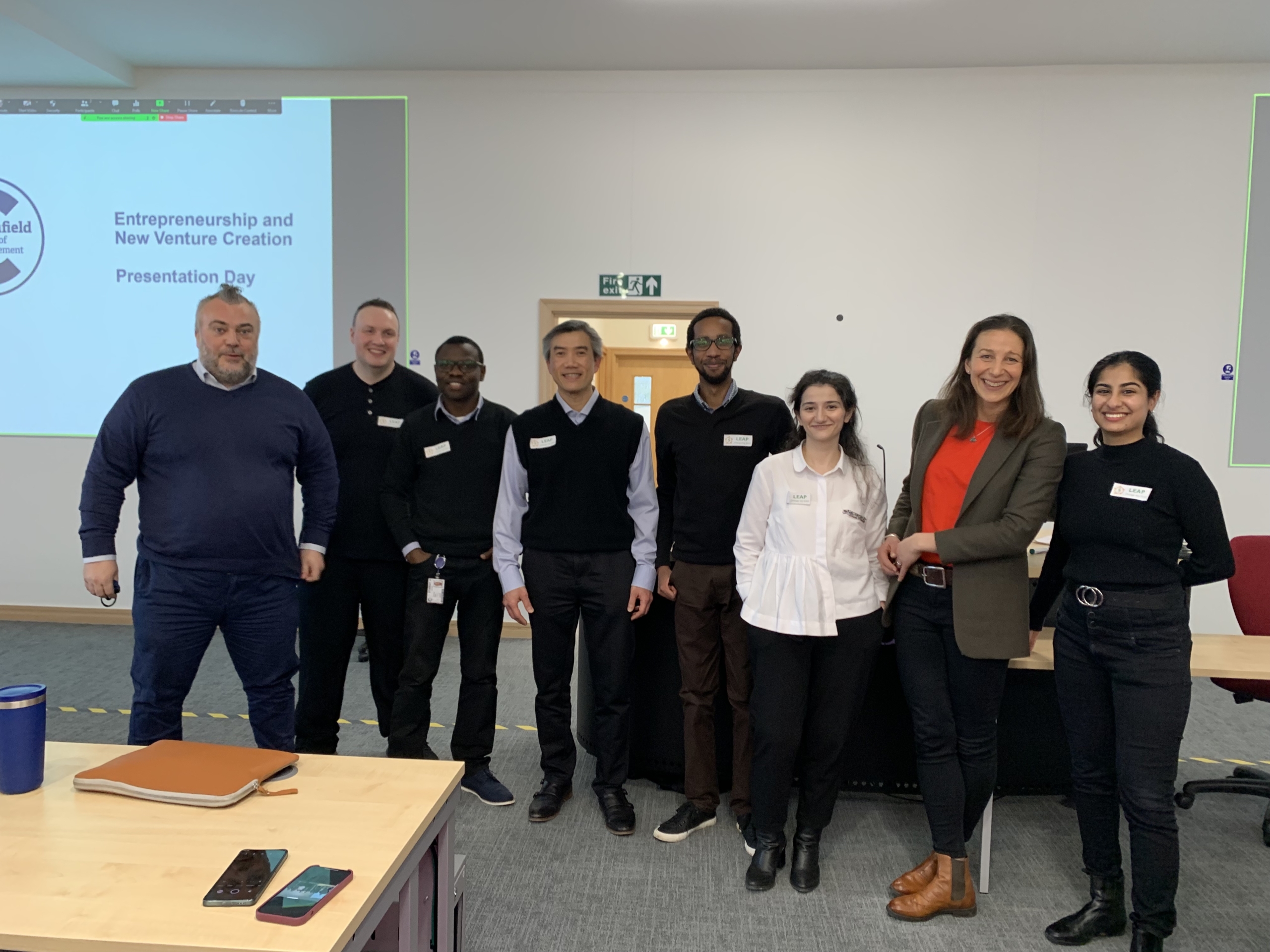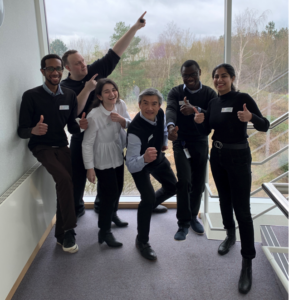My experience of the energy entrepreneurship module
29/03/2022

What’s worse than a Monday morning lecture, is a Monday morning lecture at Martel house. That means a good half-hour stroll in the cold to welcome the Monday blues. However, 20 minutes into the first session of the energy entrepreneurship module had turned them blues into rainbow woos. The sheer energy of our profs –Martin and Orsi vibrated and awoke something in each of us in the class and we knew this module was going to be very different in style and format than the rest. To begin with, this course was much more interactive than our previous highly technical courses, with case studies and group discussions involving active participation.
I was always intrigued by the business world. However, coming from an engineering background I wasn’t even sure if business was something I’d want to pursue or that I’d be any good at. This interest of mine manifested itself through this course and before I knew it, I was in diving headfirst into the vast sea of entrepreneurialism. And as I plunged into the world of business, I found in myself a certain curiousness and amusement to all the craziness. I was enamored with various aspects of business and little did I know that this would develop into a concrete business model with a solid team.

On day one, challenges were set by Dr Phil Hart, where we were given two business problems and our goal was to develop a business in response to one of those. We were to deliver a product or service idea to meet the challenge. Complete market research, pitch for investment to develop the MVP, and finally deliver the business plan and cash flow.
Two weeks flew by in a blink of an eye. This course was everything I’d expected – fun, but a lot of work. And it was! The initial week I was in the sponge phase but excited to soon start connecting the dots. Over the course of two weeks, I absorbed all I could about venture and value creation, innovation, opportunity recognition, and most importantly the entrepreneurial spirit. How to shift from thinking like problem-solving engineers to business-minded entrepreneurs. To shift from unidirectional thinking to come up with innovations and ideas out of the box.
Great things in business are never done by one person. They are done by a team of people.- Steve Jobs.
And so, this was a 100% group-based module. In the very beginning, we were split into learning teams. Building a cohesive team is essential for any start-up’s journey. Each team member came from diverse demographics and varying age groups. With two Africans, one Turkish, one Chinese, one Canadian, and myself an Indian. Each with our unique set of skills and experiences. Working alongside people coming from such varying backgrounds and all walks of life helps shed different perspectives and identify potential problems faster. We always discussed our different points of view and encouraged healthy arguments as that resulted in the constant betterment of our planning and strategies.
The course structure was well divided, and we went through all the different stages that a start-up goes through, ranging from idea generation, creation of a unique value proposition, designing of a sustainable business model, revenue projections, brand positioning, marketing campaigns, the scope of scalability and the exit strategy for potential investors.
The first few days were an introduction to entrepreneurship and the entrepreneurial environment. Which got us to think about why an entrepreneurial mindset and thinking is important? How to think like an entrepreneur? And how to incorporate these skills into our present roles. We then looked at how you take an idea and make it into a real opportunity. How that idea can work in dynamic markets and how it can set itself up to grow for the future. Each day our business idea kept moving forward. We could schedule surgery sessions with either of our profs to personally discuss our hiccups and gain their expertise.
After laying the groundwork in week one, we looked at how to get the resources you need, to capitalize on that profit opportunity. There was a separate section on intellectual property rights before it all came together as a business plan and a pitch.
The pitching competition was designed to be as close to a real-life start-up pitch competition, to gather feedback to incorporate in our business decks. Coming runners up, my team and I were ecstatic. Moreover, we knew our idea had real potential and that this was an opportunity waiting to be grabbed in the market. Hence this was an idea we couldn’t let go of, and we’ve been working on it ever since. In the span of the last two months my team – LEAP and I have gone from being engineers tapping into our unknown entrepreneurial potential to start up co-founders with ambitions to expand globally.
Categories & Tags:
Leave a comment on this post:
You might also like…
Introducing… Bloomberg Trade Flows
Are you interested in world trade flows? Would it be useful to know which nations are your country's major trading partners? If so, the Bloomberg terminal has a rather nifty function where you can view ...
Cranfield alumni voyage to the International Space Station
Seeing our alumni reach the International Space Station (ISS) has a ripple effect that extends far beyond the space sector. For school students questioning whether science is “for them”, for undergraduates weighing their next ...
From classroom to cockpit: What’s next after Cranfield
The Air Transport Management MSc isn’t just about learning theory — it’s about preparing for a career in the aviation industry. Adit shares his dream job, insights from classmates, and advice for prospective students. ...
Setting up a shared group folder in a reference manager
Many of our students are now busy working on their group projects. One easy way to share references amongst a group is to set up group folders in a reference manager like Mendeley or Zotero. ...
Company codes – CUSIP, SEDOL, ISIN…. What do they mean and how can you use them in our Library resources?
As you use our many finance resources, you will probably notice unique company identifiers which may be codes or symbols. It is worth spending some time getting to know what these are and which resources ...
Supporting careers in defence through specialist education
As a materials engineer by background, I have always been drawn to fields where technical expertise directly shapes real‑world outcomes. Few sectors exemplify this better than defence. Engineering careers in defence sit at the ...






